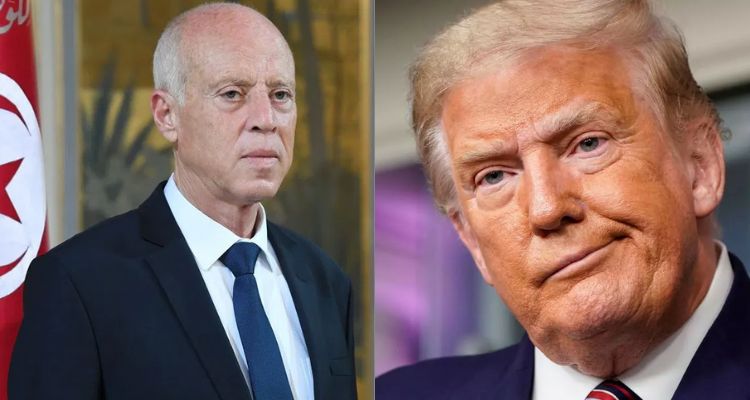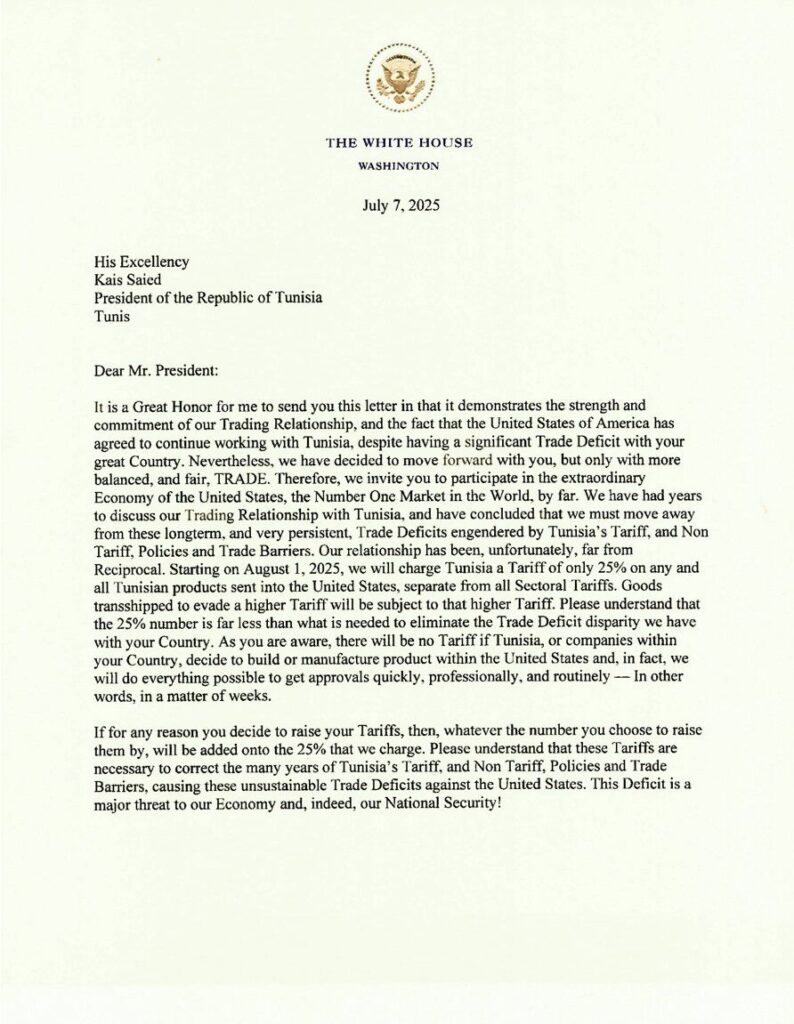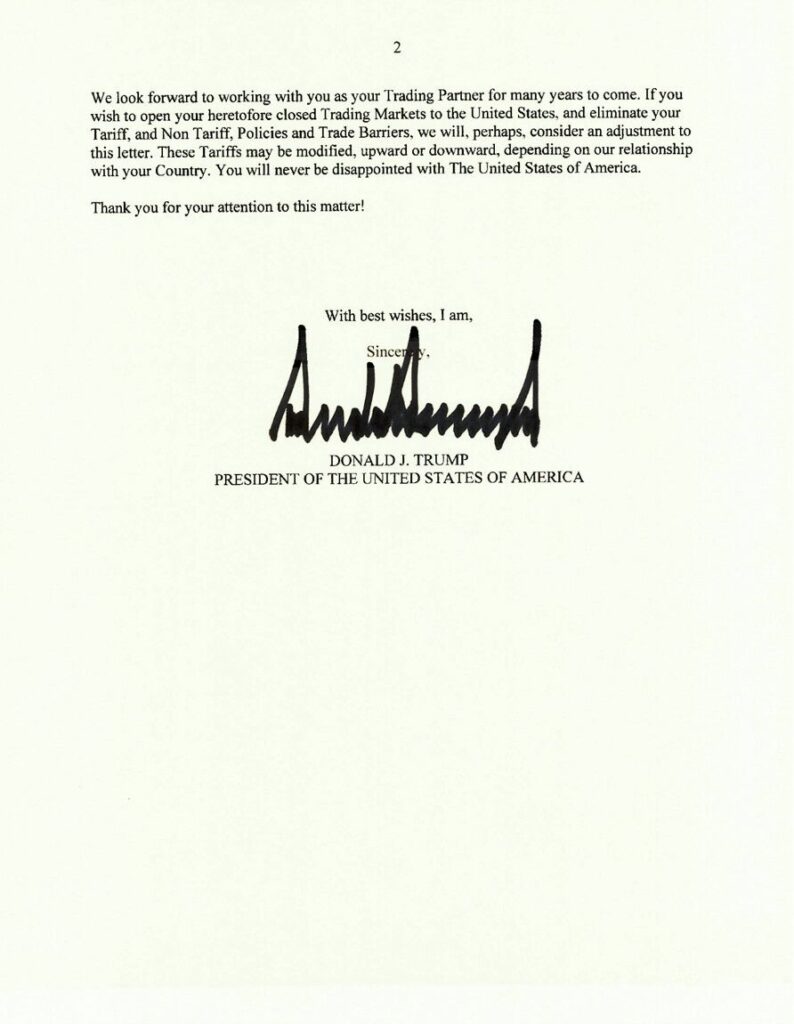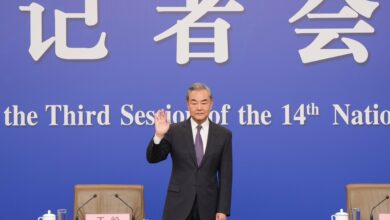Trump Threatens Kais Saied with 25% Tariffs Starting August

ALDAR / Zakaria Al-Jabri
In an official letter dated July 7, 2025, U.S. President Donald Trump issued a direct warning to Tunisian President Kais Saied, announcing the imposition of a 25% tariff on all Tunisian products exported to the U.S. market, effective from August 1.


The letter justifies the move by citing what Trump described as a “significant trade deficit in Tunisia’s favor,” accusing the Tunisian government of pursuing unfair trade practices, including “tariffs and non-tariff barriers,” which he claimed have caused direct harm to the American economy. Trump stated that trade relations between the two countries are “far from reciprocal,” emphasizing that the U.S. has decided to adopt tougher measures to restore balance in the trade relationship.
Trump clarified that the decision will apply to all Tunisian goods, including those that may pass through intermediary countries in an attempt to circumvent the new tariffs. He also warned that any effort by Tunisia to raise tariffs on American products will be met with an equivalent increase on top of the existing 25%.
Nonetheless, the U.S. president left the door open for reconsidering the decision, provided that Tunisia takes steps to “open its markets to American products and remove all protectionist policies that restrict trade,” according to the letter. He also indicated the possibility of exempting Tunisian products from the new tariffs if Tunisian companies relocate their manufacturing operations to the United States.
This letter comes amid the intensification of protectionist economic policies under the Trump administration, which had previously imposed similar tariffs on a number of trade partners, including China and Mexico, in an effort to reduce the U.S. trade deficit.
The move raises questions about the future of economic relations between Washington and Tunis, particularly in light of the severe economic crisis Tunisia is facing, as well as mounting internal and external pressure on President Saied’s government, amid a significant decline in foreign investment inflows and sluggish growth in national exports.
Meanwhile, the Tunisian authorities have yet to issue any official response to the American letter. However, observers anticipate broad reactions, especially since the measure threatens to undermine Tunisian exports to one of the world’s most important markets, potentially worsening the country’s ongoing economic turmoil.
The United States is among Tunisia’s key economic partners outside the European Union. Bilateral trade includes textiles, spare parts, and agricultural products. However, the overall trade volume remains limited compared to Tunisia’s trade with Europe; Tunisian exports to the U.S. have remained below one billion dollars annually in recent years, according to data from Tunisia’s Ministry of Trade.
In this tense context, all eyes are now on Carthage Palace and how President Kais Saied will respond to what some analysts are calling an “American diplomatic ultimatum,” especially given that the letter extends beyond trade to exert higher levels of political pressure.





